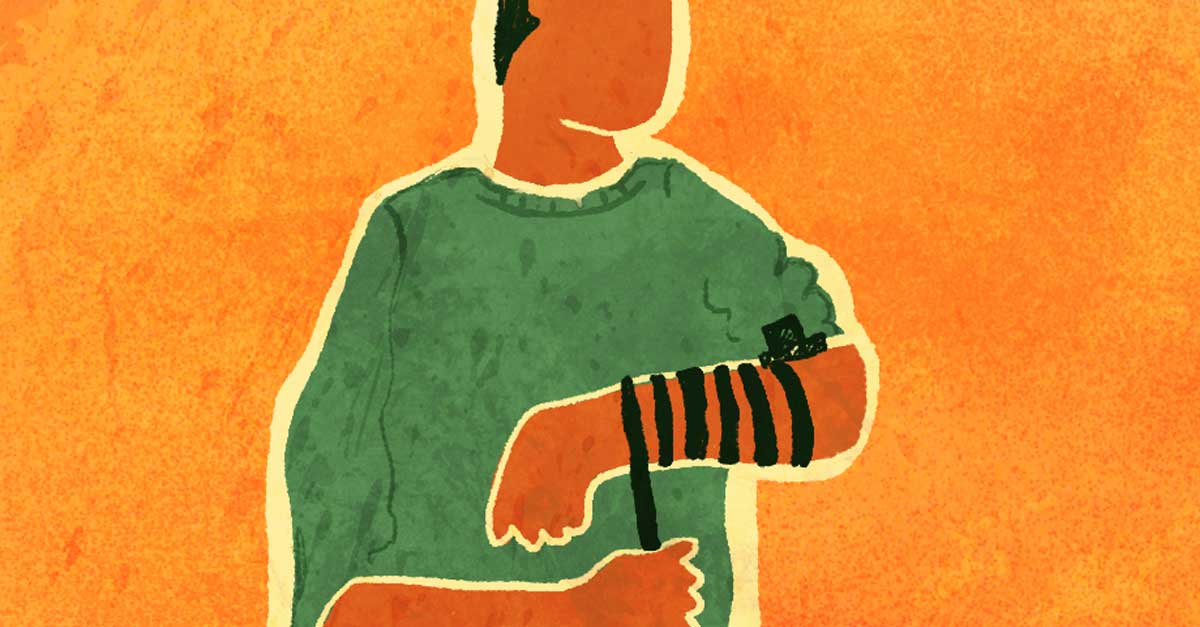
#Vayechi #תשפב
This past Sunday, together with some holy chevra from BRS West, I ran a half marathon. It was not my best race. Far from it. I knew this going in. The heat and humidity were far higher than I had anticipated. But far more impactful was my general lack of sleep in the past few weeks of having our new baby at home.
The first few weeks after having a baby are wonderful, exhilarating, exciting, and most of all, exhausting. Despite the fact that we've done this before, nothing fully prepares you.
Aliza and I joke that our inability to remember exactly what it was like the last time we had a baby is most likely due to absolute sleep deprivation that comes along with it. It seems that Hashem, in His infinite wisdom, made it impossible for new parents to form short term memories – or no one would have kids again.
And in all of that, the rest of life must continue. How is it even possible? It seems that together with the Bracha of a new baby in the family, comes the bracha of expanded capacities. All at once, we find ourselves pushing beyond what we thought could fit into our time, schedules and emotions. With the additional responsibilities, comes additional strength, creativity and mental resources.
Not everything works out perfectly, but there is a distinct feeling of becoming more.
This expansion lies at the root of the most counter-cultural productivity advice I have encountered:
Rabbi Adin Steinzaltz zt”l was without doubt, one of the most prolific teachers of Torah in the past century. Aside from his extensive works in print, he was the founder of multiple educational institutions and organizations. A number of years ago, he addressed the challenges of attempting the accomplishments he attained:
In my last letter to the Rebbe, I told him I was holding down three full time jobs: scholarly writing, outreach work in Russia, and a network of schools in Israel. Since it all seemed like too much for one person, I asked him what to focus on. His answer was typical of him, that I should “continue to do all these things and to do more things and work even harder.”
Rabbi Steinzaltz commented that it's a strange thing to tell a person that feels overwhelmed – you should take on more. But that was always the Rebbe's orientation. Both for himself and his Chassidim.
This advice flies in the face of all modern thinking on productivity. We are supposed to take breaks, recharge and relax. Or we will suffer burnout. Everyone knows that our mental health depends on getting enough sleep, and creating down time and space for entertainment and enjoyment. All of this is demonstratively true. But how then do we explain the renewed ability to do more when there is more to do? Why is it that when you want something done, you ask a busy person?
I was reflecting on this idea a little while ago when trying to convince one of our children to do something they didn't want to do. I found myself falling into well worn parental tropes, telling them “You can either do this the easy way or the hard way.” It is understood that “easy way” means without fear or pain or punishment. “Hard way” means fear, pain and punishment.
And then it hit me. This is terrible Chinuch! We have, as parents, as teachers, as society, been training ourselves and our children for generations, that difficult is equivalent to negative. We are teaching them that they should aim for the easy way.
Of course, difficult is still difficult. It is unpleasant, challenging, uncomfortable, annoying and exhausting, but it's not negative. The opposite is true as well. Not everything that is enjoyable, comfortable and entertaining is necessarily good.
This is not a novel idea; it is, at least intellectually, quite palatable. But actually choosing to do difficult and worthwhile things, rather than easy and comfortable things, is a skill that needs to be honed through a life of work.
When we consider that learning to difficult things is an Avoda, we reach a disconcerting conclusion: When we are feeling overwhelmed, have we truly reached our limit, or are we just experiencing natural resistance to doing hard things?
There is only one way to find out: Try to do more. If it works, great! If not, then we have learned a little more about our limitations. That was the Rebbe's advice. If you're overwhelmed, take on more.
The goal is not burnout. It's not to sacrifice mental health for the rat race. It's about seeing difficulty and challenge as opportunities to grow, develop and expand. This as true in exercise as it is in Avodas Hashem, davening, learning, parenting, building a home, and deepening relationships. We are conditioned to look for the easy way. But we become better people when we push ourselves to do difficult and worthwhile things. This is where growth occurs.
Indeed, the Yismach Yisrael explains that this secret is hidden in our Parsha, when Rashi famously tells us:
למה פרשה זה סתומה... שבקש לגלות את הקץ לבניו ונסתם ממנו
Why does this Parsha begin without a break in the Torah? Because Yaakov wished to reveal the redemption to his sons, but the it was concealed from him.
For most of our lives, and indeed, for most of the commentaries, this is understood as a surprise to Yaakov and tragedy for his children. Perhaps a necessary reality, but something upsetting, none the less. If only Hashem would have allowed Yaakov to tell us how and when Geulah would happen!
Not so, says the Yismach Yisrael:
Since Yaakov wanted to reveal to his children the world of Mashiach, of Geulah and of Redemption, by definition, he needed to demonstrate to them that light comes from darkness. If we want to experience redemption, we need to get comfortable with the darkness that precedes it.
It's interesting to note that Yaakov Avinu himself has only recently grown into this understanding. At the beginning of his time in Eretz Yisrael the Torah tells us that בקש לישב בשלוה – Yaakov desperately wanted to settle in tranquility.
But Hashem brings upon Yaakov challenge after challenge. Yosef and his brothers, Yehuda and Tamar, the abduction of Dina. The famine, and the threat of losing Binyamin. Throughout this time, Yaakov is desperate for a moment's reprieve.
How uncanny that in the final 17 years of his life, Yaakov achieves that which he never could ever before. Calm, serenity, a relationship with his children and grandchildren. Unity in the family, and the chance to enjoy his life – ויחי יעקב – Yaakov was finally alive.
What enabled Yaakov to experience life?
The Torah tells us that when Yaakov hears that Yosef is alive he prepares to move his life to Egypt. Consider how terrifying this must have been for Yaakov. Hashem has promised that the Jewish people would experience exile. And now, Yaakov was willing entering exile himself.
And in choosing to do this frightening, dark and terrifying thing is Yaakov's final message to his children. You can do this the easy way of the hard way. I beg you: Do it the hard way. Choose something difficult and enter into the challenge willingly. Don't look for the easy way out. Because ויחי is not the same as וישב – living and settling are opposites.
Some friends questioned that sanity in attempting the race at all. It's good question – one that I replayed about a billion times in the 13.1 challenging miles of the run. But by the end I discovered that life is not a sprint but it's not a marathon either. Both of these have a finish line as their goal. And life is not about getting to the end.
Yaakov is telling us that Life is Training. The goal is to engage and get better at it. Some days are fantastic. Most come with aches and pains. Fatigue and setbacks are normal parts of the growth process. The goal is to keep at it – that's how we become more.
___
Subscribe to this blog here👇.
YouTube: www.youtube.com/raelblum
Facebook: facebook.com/rael.blumenthal










